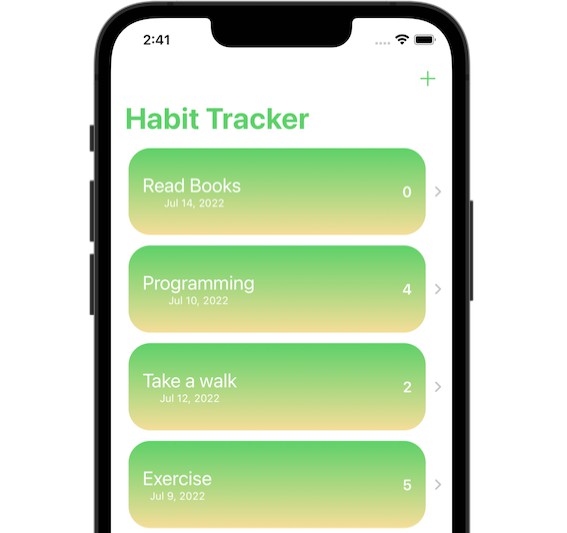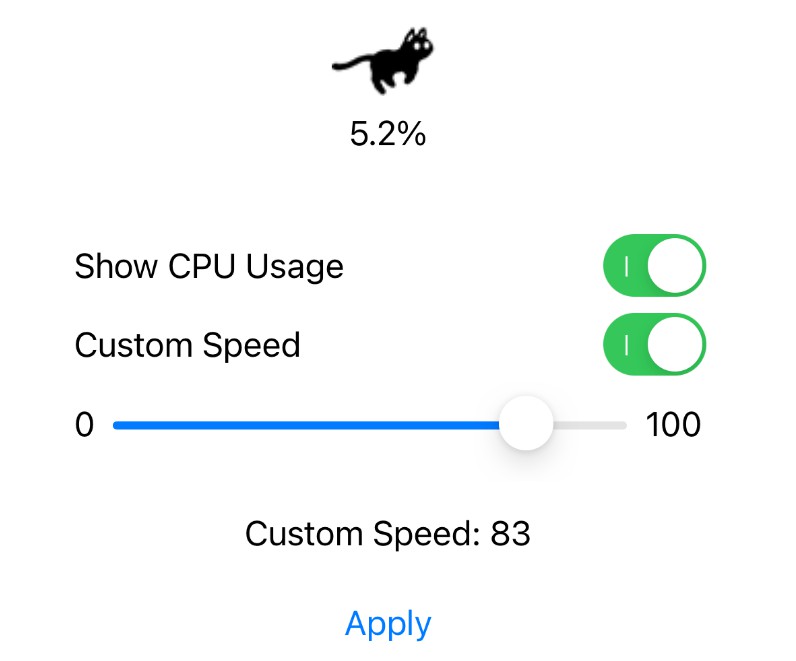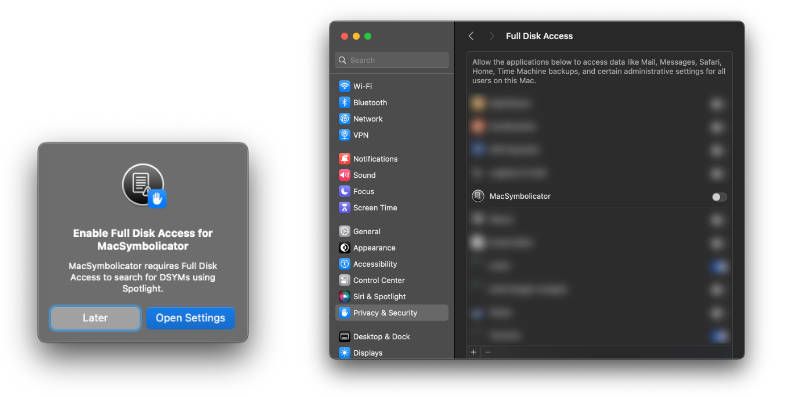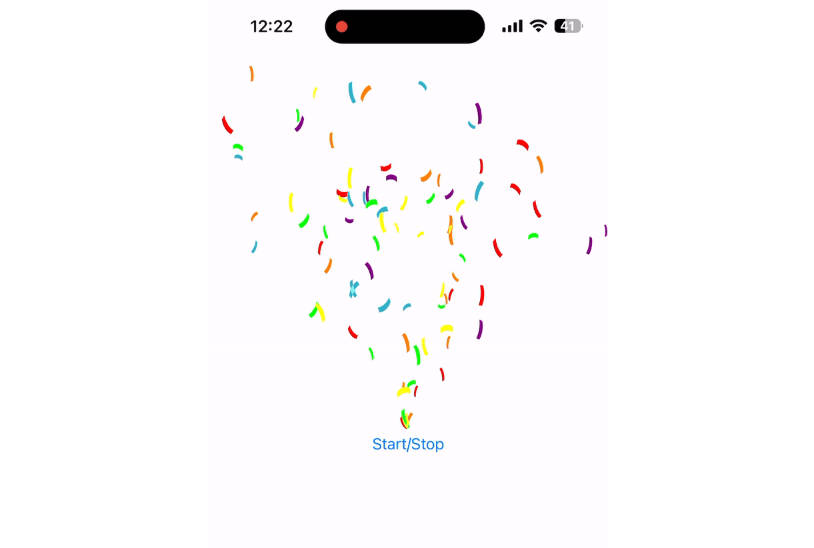Observable
Collection of carefully-prepared Classes and Protocols designed to imbue your inheriting Object Types with efficient, protocol-driven Observer Pattern Behaviour.
Installation
Xcode Projects
Select File -> Swift Packages -> Add Package Dependency and enter https://github.com/Flowduino/Observable.git
Swift Package Manager Projects
You can use Observable as a Package Dependency in your own Packages’ Package.swift file:
let package = Package(
//...
dependencies: [
.package(
url: "https://github.com/Flowduino/Observable.git",
.upToNextMajor(from: "1.0.6")
),
],
//...
)
From there, refer to Observable as a “target dependency” in any of your package’s targets that need it.
targets: [
.target(
name: "YourLibrary",
dependencies: [
"Observable",
],
//...
),
//...
]
You can then do import Observable in any code that requires it.
Usage
Here are some quick and easy usage examples for the features provided by Observable:
ObservableClass
You can inherit from ObservableClass in your own Class Types to provide out-of-the-box Observer Pattern support.
This not only works for @ObservedObject decorated Variables in a SwiftUI View, but also between your Classes (e.g. between Services, or Repositories etc.)
First, you would define a Protocol describing the Methods implemented in your Observer Class Type that your Observable Class can invoke:
/// Protocol defining what Methods the Obverable Class can invoke on any Observer
protocol DummyObserver: AnyObject { // It's extremely important that this Protocol be constrained to AnyObject
func onFooChanged(oldValue: String, newValue: String)
func onBarChanged(oldValue: String, newValue: String)
}
Note – It is important that our Protocol define the AnyObject conformity-constraint as shown above.
Now, we can define our Observable, inheriting from ObservableClass:
/// Class that can be Observed
class Dummy: ObservableClass {
private var _foo: String = "Hello"
public var foo: String {
get {
return _foo
}
set {
// Invoke onFooChanged for all current Observers
withObservers { (observer: DummyObserver) in
observer.onFooChanged(oldValue: _foo, newValue: newValue)
}
_foo = newValue
objectWillChange.send() // This is for the standard ObservableObject behaviour (both are supported together)
}
}
private var _bar: String = "World"
public var bar: String {
get {
return _bar
}
set {
// Invoke onBarChanged for all current Observers
withObservers { (observer: DummyObserver) in
observer.onBarChanged(oldValue: _bar, newValue: newValue)
}
_bar = newValue
objectWillChange.send() // This is for the standard ObservableObject behaviour (both are supported together)
}
}
}
We can now define an Observer to register with the Observable, ensuring that we specify that it implements our DummyObserver protocol:
class DummyObserver: DummyObserver {
/* Implementations for DummyObserver */
func onFooChanged(oldValue: String, newValue: String) {
print("Foo Changed from \(oldValue) to \(newValue)")
}
func onBarChanged(oldValue: String, newValue: String) {
print("Bar Changed from \(oldValue) to \(newValue)")
}
}
We can now produce some simple code (such as in a Playground) to put it all together:
// Playground Code to use the above
var observable = Dummy() // This is the Object that we can Observe
var observer = DummyObserver() // This is an Object that will Observe the Observable
observable.addObserver(observer) // This is what registers the Observer with the Observable!
observable.foo = "Test 1"
observable.bar = "Test 2"
ObservableThreadSafeClass
ObservableThreadSafeClass works exactly the same way as ObservableClass. The internal implementation simply encapsulates the Observer collections behind a DispatchSemaphore, and provides a Revolving Door mechanism to ensure unobstructed access is available to addObserver and removeObserver, even when withObservers is in execution.
Its usage is exactly as shown above in ObservableClass, only you would substitute the inheritence of ObservableClass to instead inherit from ObservableThreadSafeClass.
ObservableThread
ObservableThread provides you with a Base Type for any Thread Types you would want to Observe.
Note – ObservableThread does implement the ObservableObject protocol, and is technically compatible with the @ObservedObject property decorator in a SwiftUI View. However, to use it in this way, anywhere you would invoke objectWillUpdate.send() you must instead use notifyChange(). Internally, ObservableThread will execute objectWillChange.send() but enforce that it must execute on the MainActor (as required by Swift)
Let’s now begin taking a look at how we can use ObservableThread in your code.
The example is intentionally simplistic, and simply generates a random number every 60 seconds within an endless loop in the Thread.
Let’s begin by defining our Observation Protocol:
protocol RandomNumberObserver: AnyObject {
func onRandomNumber(_ randomNumber: Int)
}
Any Observer for our Thread will need to conform to the RandomNumberObserver protocol above.
Now, let’s define our RandomNumberObservableThread class:
class RandomNumberObservableThread: ObservableThread {
init() {
self.start() // This will start the thread on creation. You aren't required to do it this way, I'm just choosing to!
}
public override func main() { // We must override this method
while self.isExecuting { // This creates a loop that will continue for as long as the Thread is running!
let randomNumber = Int.random(in: -9000..<9001) // We'll generate a random number between -9000 and +9000
// Now let's notify all of our Observers!
withObservers { (observer: RandomNumberObserver) in
observer.onRandomNumber(randomNumber)
}
Self.sleep(forTimeInterval: 60.00) // This will cause our Thread to sleep for 60 seconds
}
}
}
So, we now have a Thread that can be Observed, and will notify all Observers every minute when it generates a random Integer.
Let’s now implement a Class intended to Observe this Thread:
class RandomNumberObserverClass: RandomNumberObserver {
public func onRandomNumber(_ randomNumber: Int) {
print("Random Number is: \(randomNumber)")
}
We can now tie this all together in a simple Playground:
var myThread = RandomNumberObservableThread()
var myObserver = RandomNumberObserverClass()
myThread.addObserver(myObserver)
That’s it! The Playground program will now simply print out the new Random Number notice message into the console output every 60 seconds.
You can adopt this approach for any Observation-Based Thread Behaviour you require, because ObservableThread will always invoke the Observer callback methods in the execution context their own threads! This means that, for example, you can safely instantiate an Observer class on the UI Thread, while the code execution being observed resides in its own threads (one or many, per your requirements).
Additional Useful Hints
There are a few additional useful things you should know about this Package.
A single Observable can invoke withObservers for any number of Observer Protocols
This library intentionally performs run-time type checks against each registered Observer to ensure that it conforms to the explicitly-defined Observer Protocol being requested by your withObservers Closure method.
Simple example protocols:
protocol ObserverProtocolA: AnyObject {
func doSomethingForProtocolA()
}
protocol ObserverProtocolB: AnyObject {
func doSomethingForProtocolB()
}
Which can then both be used by the same ObservableClass, ObservableThreadSafeClass, or ObservableThread descendant:
withObservers { (observer: ObserverProtocolA) in
observer.doSomethingForProtocolA()
}
withObservers { (observer: ObserverProtocolB) in
observer.doSomethingForProtocolB()
}
Any number of Observer Protocols can be marshalled by any of our Observable types, and only Observers conforming to the explicitly-specified Observer Protocol will be passed into your withObservers Closure method.
License
Observable is available under the MIT license. See the LICENSE file for more info.












